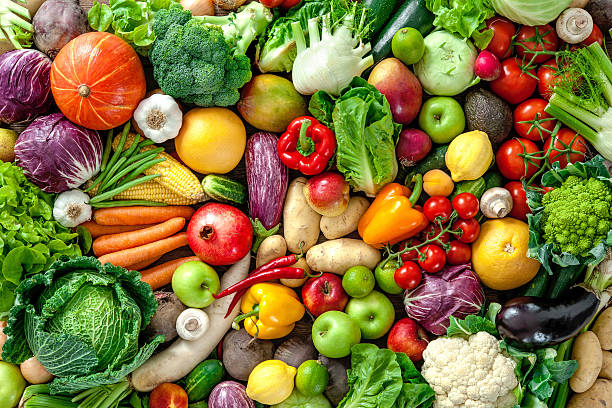Vegetables are an essential part of a healthy diet, providing a wide range of nutrients and health benefits. They are low in calories and high in vitamins, minerals, and fiber, making them an ideal food choice for weight management and overall health.
One of the main nutritional benefits of vegetables is their high vitamin content. Many vegetables are rich in vitamins A, C, and K, as well as folate and other B vitamins. These vitamins are essential for maintaining healthy skin, eyes, and immune system function, and they also play a role in preventing chronic diseases such as cancer and heart disease.
In addition to vitamins, vegetables are also a good source of minerals such as potassium, calcium, and iron. Potassium is important for maintaining healthy blood pressure and heart function, while calcium and iron are essential for maintaining strong bones and healthy blood cells, respectively.
Vegetables are also high in fiber, which is important for maintaining a healthy digestion and preventing constipation. Fiber also helps to lower cholesterol and stabilize blood sugar levels, which can help to prevent diabetes and heart disease.
Another important nutritional benefit of vegetables is their high antioxidant content. Antioxidants are compounds that help to protect the body from damage caused by free radicals, which can lead to cell damage and chronic diseases such as cancer. Vegetables such as broccoli, spinach, and bell peppers are particularly high in antioxidants, making them an excellent food choice for overall health.
In addition to their nutritional benefits, vegetables are also considered to be healthy for you because of their low calorie content. This makes them an ideal food choice for weight management and maintaining a healthy weight. Vegetables can be eaten raw or cooked and can be used in a variety of dishes such as salads, stir-fries, and soups.
Eating a diet rich in vegetables can also help to reduce the risk of chronic diseases such as cancer, heart disease, and diabetes. Studies have shown that individuals who eat a diet rich in vegetables have a lower risk of developing these diseases. This is likely due to the combination of nutrients and antioxidants found in vegetables, as well as their low calorie content.
In conclusion, vegetables are an essential part of a healthy diet and provide a wide range of nutrients and health benefits. They are low in calories and high in vitamins, minerals, and fiber, making them an ideal food choice for weight management and overall health. They are also high in antioxidants and can help to reduce the risk of chronic diseases such as cancer, heart disease, and diabetes. Eating a diet rich in vegetables is an easy way to improve your health and well-being.

 Home
Home Health
Health Diet & Nutrition
Diet & Nutrition Living Well
Living Well More
More












